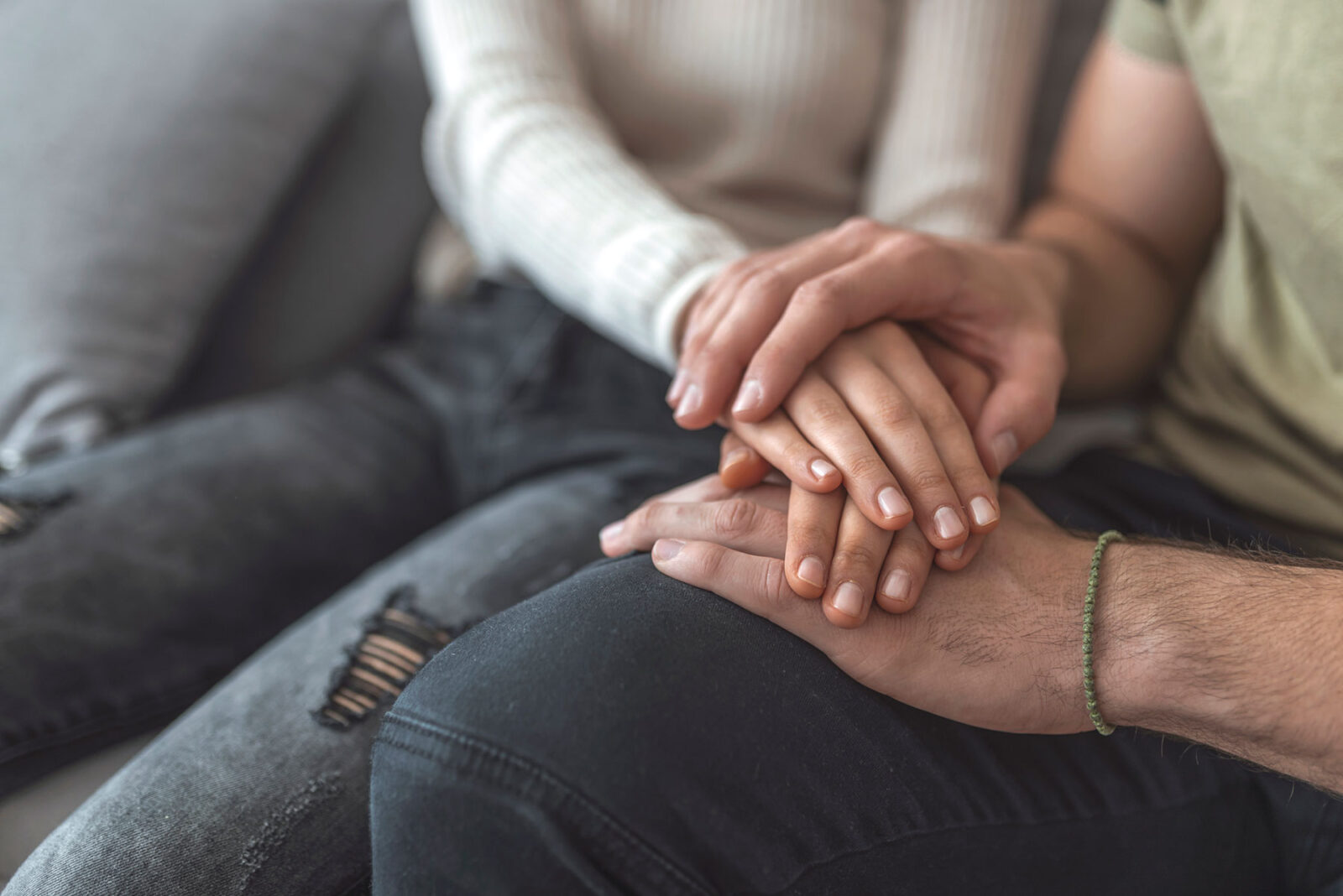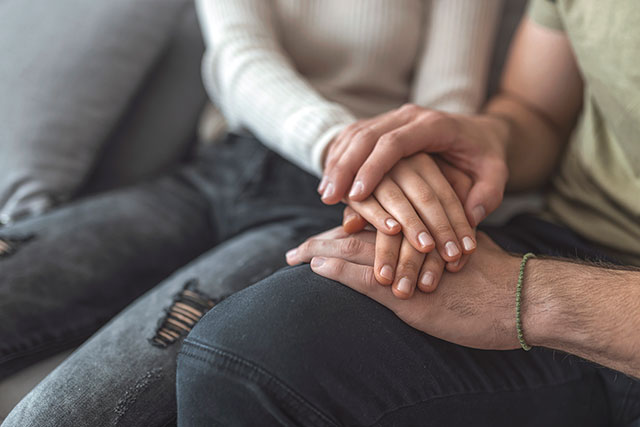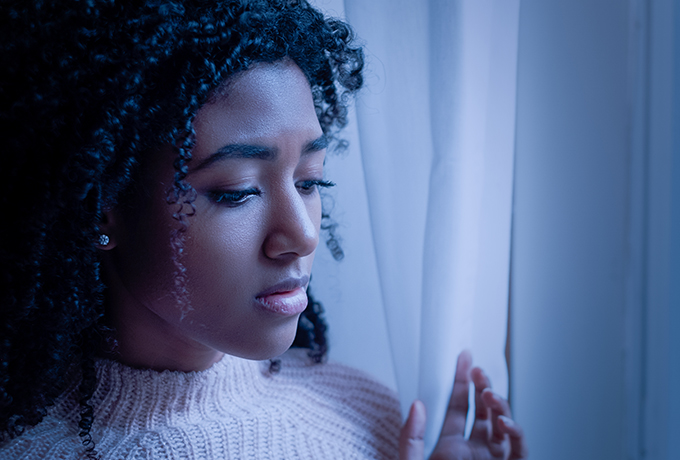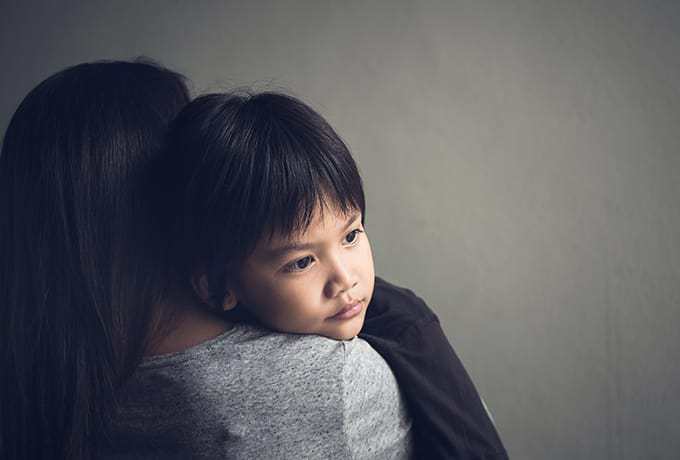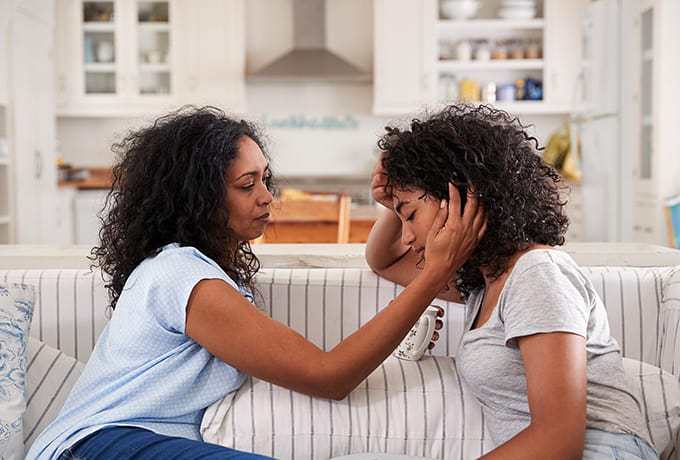People bereaved by suicide often experience complicated bereavement. There can be many other feelings in addition to grief including shock, social isolation, anger and guilt. The often sudden and sometimes unexpected nature of the death can also be extremely traumatic for those who lived with or knew the person.
In addition to the mix of emotions, bereavement following suicide often contains a prolonged search for an explanation for the person’s death. This can make grieving more complex and draining, as often we can never really be certain of what the person was thinking or feeling when they chose to end their life. The search for an understanding of the suicide often leads us to think more deeply about our relationship with the person and can make the loss even more profound.
Bereavement following a suicide is different for everyone but usually leads to adjustments in your life and the way in which you view yourself and your relationships with others. As the process of grieving unfolds it is common for people to start to focus more on the purpose of their lives, their relationships, thoughts, hopes, beliefs and sense of future.
“Grief is not a sign of poor coping skills, but rather a healthy part of the healing process.”
Usually the intensity of grief will rise and fall with small periods of relief between emotional times.
Understanding your emotions during bereavement
Shock
The initial sense of shock and disbelief following a completed suicide can be very intense, almost disabling. Common themes can be images of the death, even if it was not witnessed, or reconstructions in your mind of the circumstances at the end of the person’s life. Finding the body may be another traumatic and haunting event. It is natural for the mind to go over and over the very frightening and painful images of the death and the feelings these create.
Shock can have physical effects such as nausea, shaking, stomach pain, sleeping difficulties, breathlessness and chest pain. These are the body’s natural reactions to being placed under extreme emotional pressure. If you find yourself experiencing some of these physical symptoms it is advisable to see your local doctor.
Disbelief
Accepting the death of a loved one is not an easy task. It is not uncommon for those bereaved by suicide to expect their loved ones to walk through the door, to expect the phone to ring or to feel that they are in a dream state. Researchers talk about this disbelief as being a natural protective mechanism which will dissipate over time as a person starts to adjust to the death and the absence of the person from their life.
Understanding why
One of the hardest aspects of bereavement following suicide is never fully understanding why the person has taken their life. Even if you were aware of the difficulties and desperation the person was facing, it is difficult to understand why they felt that taking their life was the only answer for them.
The question of ‘why’ is one that can repetitively trouble those bereaved by suicide because, in many cases, it can never truly be resolved. It may help to talk about these recurring thoughts with a counsellor or psychologist, either in-person, or on the telephone with a professional service such as the Suicide Call Back Service 1300 659 467.
Guilt
People bereaved following suicide often experience feelings of guilt and a sense of failure that the suicide was not prevented. You may feel you should have seen it coming, or that you could have done more to prevent it.
People often worry about not having picked up on cues or the suicidal behaviour prior to the death. It’s important to remember that it is easier to recognise a person’s distress in hindsight, and that the level of support you offered them was based on your understanding of their situation at the time.
Anger and blaming
Anger with the deceased person is normal but often confusing. You may feel angry at them for giving up, leaving and causing so much pain. You might find yourself blaming someone you perceive as having contributed to the suicide, such as a psychologist or a relative for not having done more. You may also feel angry at yourself for not preventing the suicide.
Talking about the anger you are feeling often helps. Alternatively you may find a physical activity, such as walking or playing sport enables you to release pent up anger.
Shame
The stigma attached to suicide, may compound grief. You may be unsure what to tell people for fear they’ll judge you or the deceased.
Your own acceptance of the person’s choice to take their own life can help to relieve your shame, and you can speak to others who share this acceptance. Close friends may be willing to have a conversation with you about the death, your needs and how they can be of assistance, but initially not know how to begin. You can help yourself (and them) by maintaining contact with them as you experience your grief, and talking with them about what is important for you when the moment is right.
Looking after yourself after a suicide
Grief is a very draining period of emotional upheaval. Try to eat and sleep well and set aside time for exercise. Spend time with nurturing people and ensure you have the time to yourself that you need. Significant events such as birthdays, Christmas and anniversaries can evoke intense feelings and memories. Be prepared for such events and have a plan in place, such as calling or being with a friend or family member. Some people find that rituals can help to commemorate the person’s life and help to get through these challenging occasions. It could be as simple as lighting a candle or reading a poem. Photographs, story telling and the use of a memory box/book can also bring to mind the positive parts of the life of the person who has died. See our Looking after yourself after a suicide page for further advice.
Be kind to yourself
Sometimes people who have lost a friend or loved one to suicide might also feel suicidal themselves. The pain connected to grieving might be so intense that you consider suicide. If you are experiencing suicidal thoughts yourself, it is important to get some professional assistance.
Just as the reasons behind each suicide are unique, so too are the reactions and coping processes of those left behind.
Be kind to yourself, allow yourself to feel the pain and also allow yourself to feel happiness, and make plans for the future.
How long you grieve is not a measure of how much you loved the person who died. You’ll never forget, but you’re allowed to move on.
If you have lost someone to suicide, and need someone to talk to, call the Suicide Call Back Service on 1300 659 467 to speak to a counsellor.
If it is an emergency, please call 000.
